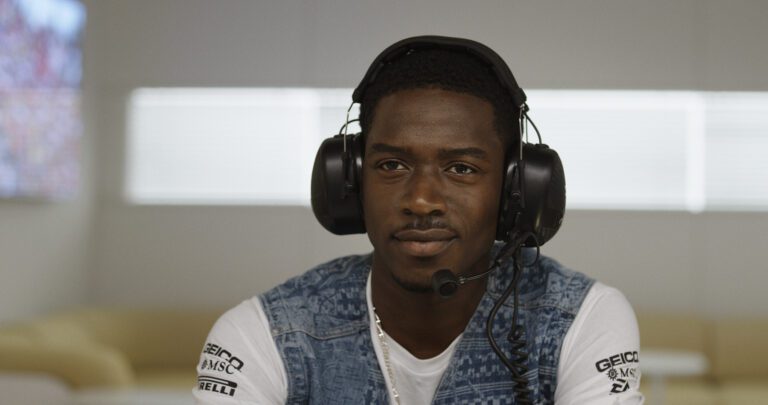Making a living in independent film is no easy task, but when you’ve built a casting career spanning four decades in the genre, you start to qualify for legend status. That’s Caroline Sinclair, who has been involved in nearly 100 projects since she first started casting in 1990, almost all of them of the indie variety.
Sinclair has cast projects such as Party Girl (which introduced Parker Posey to a wider audience), the infamous Gotti and dozens in between. Two of her latest, the comedy Advanced Chemistry and the horror-comedy mashup The Zombie Wedding, are in theaters. She spoke to us from her home office in New York.
Key Insights:
- Build a diverse skill set: Actors should consider working in various areas of the industry, such as commercials and new media, to maintain a sustainable career, much like Caroline Sinclair has done alongside her work in independent films.
- Embrace preparation: Always come to auditions as prepared as possible. While it’s not necessary to have lines completely memorized, familiarity with the material and being ready to perform is critical.
- Respect the material: Avoid adding unsolicited improvisation to audition pieces, as it can come across as disrespectful to the writer and may not align with the casting director’s expectations.
- Enjoy the process: Remember that auditions are an opportunity to shine, and casting directors are rooting for actors to succeed. Actors should try to enjoy the experience and showcase their talents confidently.
- Understand the industry’s interconnectedness: Acknowledge that success in auditions reflects well on both the actor and the casting director, fostering a mutually beneficial relationship. Casting directors want actors to be great, so maintaining a professional and positive attitude is beneficial.
How did you get into casting?
Oh, my goodness, I feel like such a fraud, except I’ve been doing it for 100 years. I fell into it.
When it comes to casting, Caroline, just about everybody just “fell into it.”
Really? Because I’ve always thought somehow that I was a fraud.
Almost nobody has a direct road to casting. It’s usually a circuitous, falling-into-it type of deal.
I was working as an assistant film editor on documentaries. We were doing the documentary called Anarchism in America for PBS, which is kind of crazy because I had studied philosophy and politics at university, which is the only reason why they gave me the job.
One day, they didn’t need me, so I went to work on a film where they needed me in the casting department, and I figured, “well, this is far more fun than syncing up the 16-millimeter film.” And of course, I always loved actors and theater and film, so that’s how I fell into it.
Was it that simple? You just said, “Oh, this is more fun,” and you decided to stick with it?
I went back to my editing job, but the next time that production company got a film, they ended up giving me the casting job and not the woman that I was working for, which wasn’t particularly good for our friendship, but that’s how I kind of got into it.
You worked on one job as an associate, and then you were a full casting director?
Yeah. It was a terrible, non-union movie, to be honest (laughs), and it was so much fun. It was 100 years ago. We were working in some dilapidated building in Soho with lots of rats and mice, and it was kind of perfect, but that’s how I started to learn.
After that, I did try to work with another casting director, because I figured I should get serious. Instead I got a phone call about this crazy movie called Frankenhooker, and I ended up casting every principal and every extra for them. Then they gave me another job called Basket Case 2, and that was it. I did learn on the job. Also, they were SAG jobs, so I was desperately trying to learn all the rules and regulations.
I would think that getting a job for a SAG film, especially after doing smaller, non-union movies, gave you an air of legitimacy that led to more people hiring you.
I feel in a way I was very lucky because I’d also worked in production on other jobs, so I did know people. The first people I worked with definitely entrusted me with their project. They were a bizarre group, and I think that they liked people who were a little out of the box working for them, right? Often, that’s how we get our first opportunity.
One of the things I find interesting about you is that you have built a very successful career working primarily in independent film. Is there a secret to being able to survive in that world for as long as you have?
That’s a very good question. I feel it’s a little more challenging now, but I also do commercials, which have been very nice, and I do a lot of new media stuff. I do feel that there used to be more independent movies. Now, I’m not even sure what the term means, because it’s so hard for a medium-sized movie to get off the ground these days.
Is it challenging to work in a field where the hit-or-miss ratio is so pronounced? Movies that don’t see the light of day or, like a lot of Indies from inexperienced filmmakers, just aren’t that great?
You just want to do your best job. I mean, sometimes it’s very disappointing because things don’t always turn out as you imagined they would. You try and do the most honest, authentic job that you can. Hopefully, it will work, but yes, it is disappointing (when they don’t).
Conversely, I imagine there are plenty of times when you see something and say, “Wow, that came out much better than I would have thought.”
Absolutely. That’s a fantastic feeling.
Do you find that there are common mistakes that actors make when they come into audition?
I just advertised for a role that’s shooting tomorrow, and some person just did this whole improv before she got into the scene on the self tape. I usually love people to do improv, but I thought it was kind of rude to the writer and a bit nuts, not asking to do it, and just doing it as the first take.
With that in mind, is there any piece of advice or wisdom that you would give to an actor coming to audition for you?
Just the most obvious one, which is to be as prepared as you possibly can. You don’t necessarily need to be off-book.
I know there are all these SAG rules now that we can’t ask people to be off-book, but just try and be as prepared as possible. And enjoy the experience. I think it’s also really important to remind actors that we’re on their side and that we want them to shine and do brilliantly. We’re selfish. We want them to be great, so we look good and we get hired again. I think we’re all so connected, and I think it’s really important for actors to remember that. We love actors.
Thinking about joining Casting Networks? Sign up for a free trial today!
You may also like:













